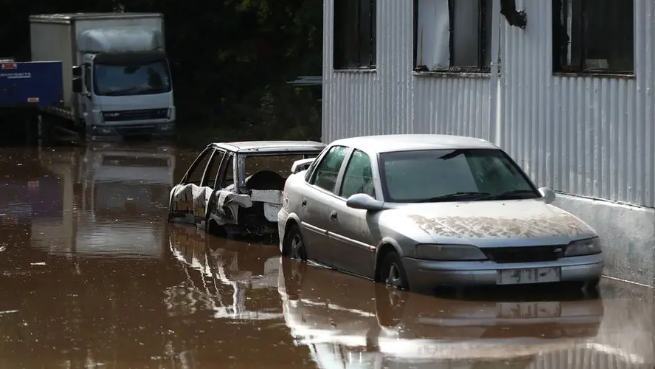Home / Disasters and Accidents / Flood Victims Slam Government's "Tick-Box" Response Years After Devastating Disaster
Flood Victims Slam Government's "Tick-Box" Response Years After Devastating Disaster
13 Oct
Summary
- Residents frustrated by lack of progress on long-awaited flood defense schemes
- Homeowner's house severely damaged, now "probably worthless"
- Families feel "left behind" and live in constant fear of weather warnings

In October 2025, residents in Northern Ireland who were impacted by severe flooding in 2017 have expressed frustration with the government's response, describing a recent public meeting hosted by the Department for Infrastructure (DfI) as a "tick-box exercise".
The floods in 2017 caused widespread destruction, with roads and bridges crumbling, cars being washed away, and homes and businesses destroyed. Over 100 people had to be rescued from their cars and homes after 63% of August's average rainfall fell within just 9 hours. The north-west region, particularly Derry and Drumahoe, as well as parts of County Tyrone, were the worst affected areas.
At a meeting in the Foyle Arena, residents who experienced the 2017 flooding expressed their frustration that little progress has been made on long-awaited flood defense schemes. Yvette Birney, whose home in the Waterside was severely damaged, said the meeting only offered "platitudes and old rhetoric" and that the government's view was that "cost outweighed benefit, and that's why nothing was done initially."
Another resident, Steve Comber, whose home in Newtownstewart was destroyed, now chairs a flood resilience group. He said he feels "left behind" and lives in constant fear of weather warnings, believing families like his have been abandoned. Comber questioned, "You spend all your life raising a family, putting everything into a house and you can see it all being taken away from you. My house is probably worthless now because who is going to buy it?"
The DfI stated that it welcomed the opportunity to engage with residents and that feasibility studies have identified "viable options" for flood alleviation. However, many attendees left the meeting feeling that the government's response has been inadequate and that their concerns have not been properly addressed.




